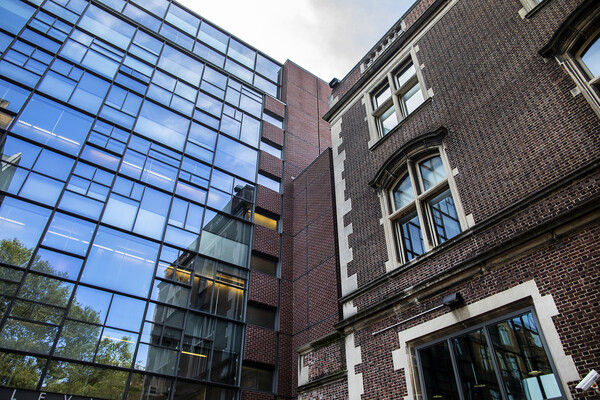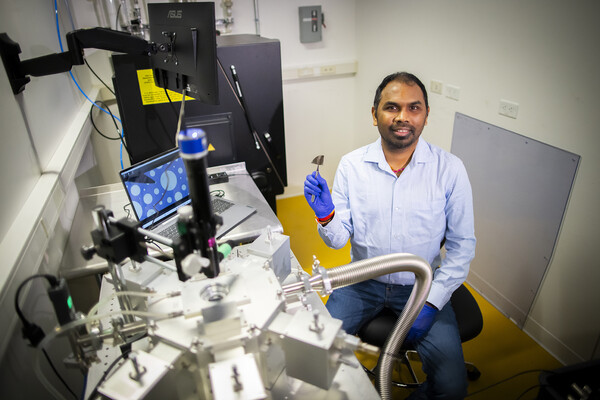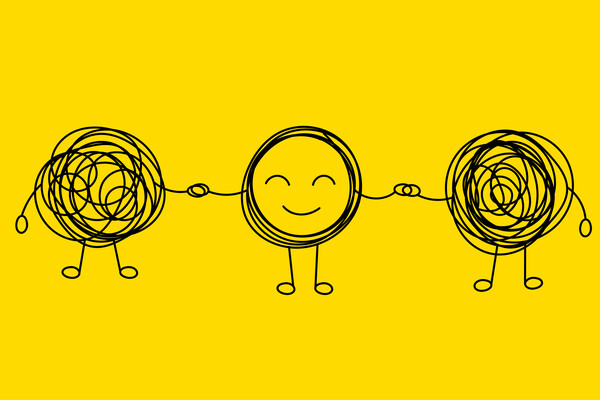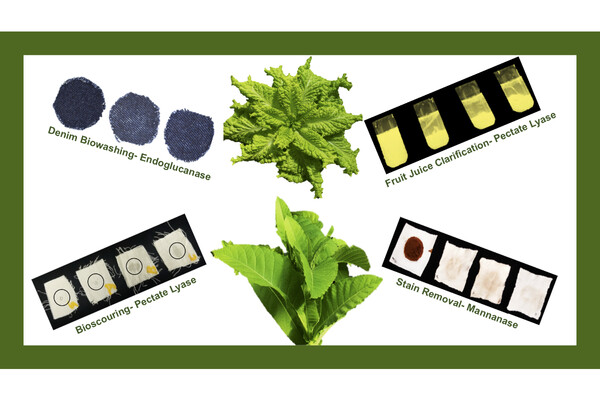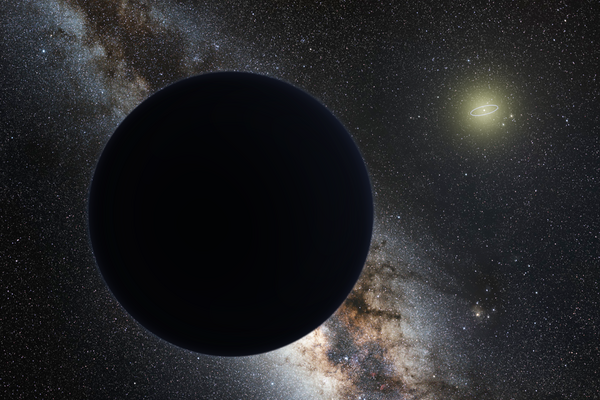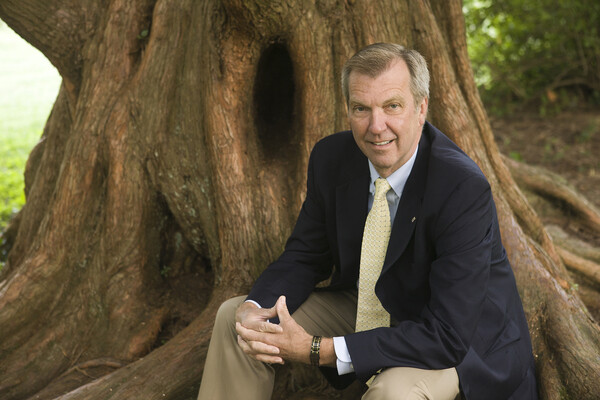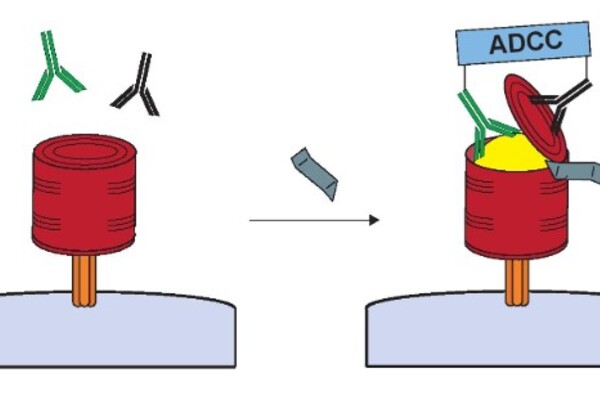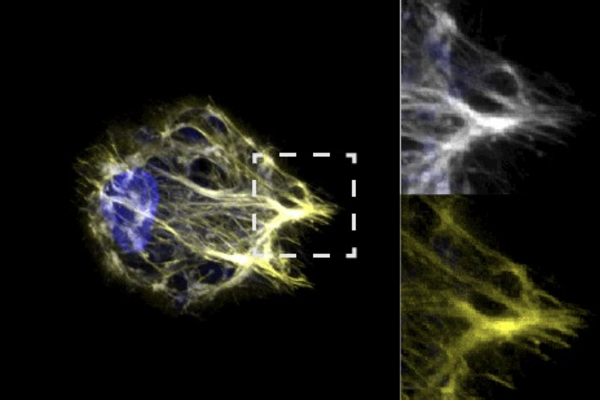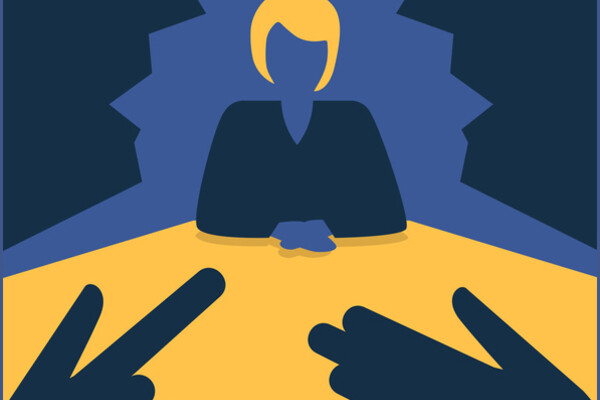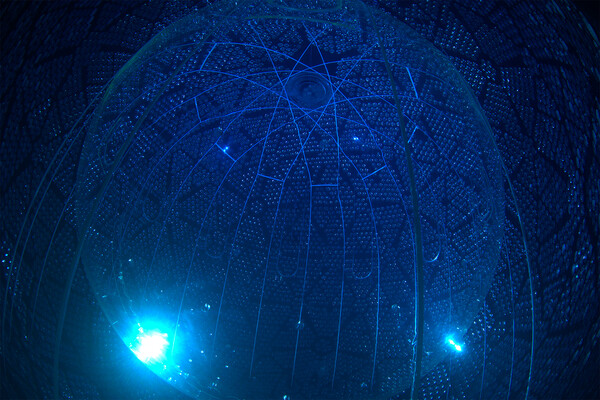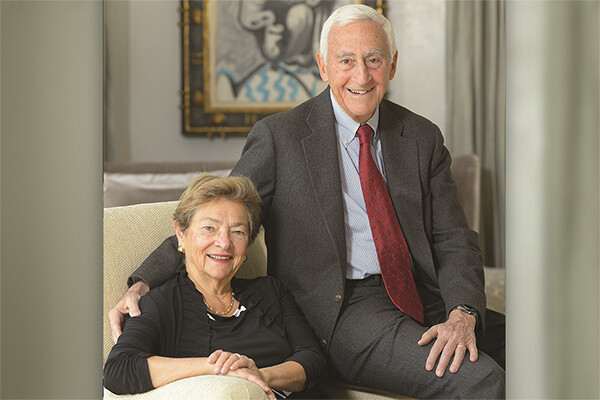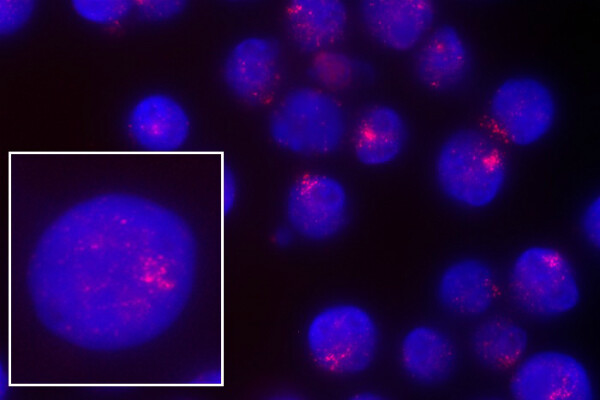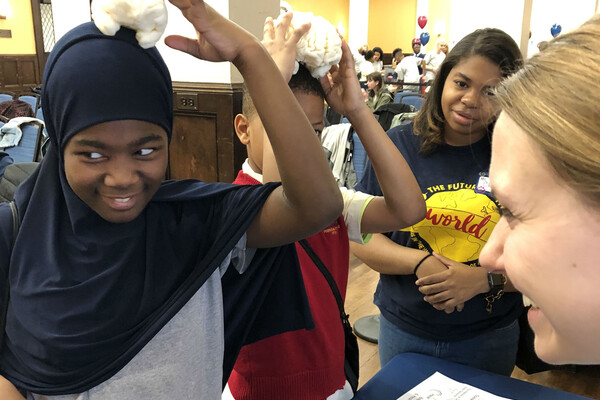5/2
Science & Technology
Everyday enzymes, now grown in plants
Myriad industrial processes rely on enzymes, from making orange juice to manufacturing denim jeans. Research emerging from the School of Dental Medicine is transforming how these enzymes get made.
The search for Planet 9, 10, and beyond
Planetary scientists and cosmologists at Penn work together to find planets that might be hiding in the far reaches of the solar system.
Outgoing Morris Arboretum director says farewell
Paul Meyer, executive director of the Morris Arboretum, talks through his 43-year career and what retirement holds in store.
New imaging study reveals previously unseen vulnerabilities of HIV
The breakthrough, Published in the journal Cell Host and Microbe, opens new paths to fight against the deadly virus.
Cells control their own fate by manipulating their environment
Muscle, blood, brain, and skin cells are different from one another, but they all share the same DNA. Stem cells’ transformation into specialized cells is controlled through various signals from their surroundings. A study suggests that cells may have more control over their fate than previously thought.
Empathy and cooperation go hand in hand
Taking a game theory approach to study cooperation, School of Arts and Sciences evolutionary biologists find that empathy can help cooperative behavior ‘win out’ over selfishness.
Answering big questions by studying small particles
Using electronics designed at Penn, particle physicists study neutrinos, incredibly small and nearly massless subatomic particles, to understand the fundamental nature of the universe.
Record gift from Roy and Diana Vagelos to create new energy science and technology building
Roy and Diana Vagelos have made a gift of $50 million to Penn Arts & Sciences for a new science center focused on energy science. The gift creating the new energy science and technology building In support of the Power of Penn Arts & Sciences Campaign is the largest in the School’s history.
Unlocking the female bias in lupus
The majority of lupus patients are female, and new findings from Montserrat Anguera of the School of Veterinary Medicine and colleagues shed light on why. The research suggests that female lupus patients don’t fully silence their second X chromosome in T cells, leading to an immune response gone awry.
From Play-Doh to Slinkies, an engaging introduction to the basics of the brain
The Kids Judge! Neuroscience Fair brought West Philadelphia fourth graders and Penn neuroscience students together for a morning of hands-on fun.
In the News
New Penn AI master’s program aims to prep students for ‘jobs that we can’t yet imagine’
Chris Callison-Burch of the School of Engineering and Applied Science discusses Penn’s new online master’s program in artificial intelligence.
FULL STORY →
Penn Engineering announces first Ivy League Master’s degree in AI
The School of Engineering and Applied Science has announced the first graduate program in artificial intelligence among Ivy League universities, led by Chris Callison-Burch.
FULL STORY →
Penn Engineering rolls out an online master’s degree in AI, first in Ivy League
The School of Engineering and Applied Science has announced the first graduate program in artificial intelligence among Ivy League universities, led by Chris Callison-Burch.
FULL STORY →
Man does DNA test, not prepared for what comes back ‘unusually high’
César de la Fuente of the School of Engineering and Applied Science and Perelman School of Medicine says that Neanderthal DNA provides insights into human evolution, population dynamics, and genetic adaptations, including correlations with traits such as immunity and susceptibility to diseases.
FULL STORY →
Forecast group predicts busiest hurricane season on record with 33 storms
A research team led by Michael Mann of the School of Arts & Sciences is predicting the upcoming Atlantic hurricane season will produce the most named storms on record, fueled by exceptionally warm ocean waters and an expected shift from El Niño to La Niña.
FULL STORY →
My Climate Story: Philly students take science from abstract to personal
The “My Climate Story” project at the Environmental Humanities Department helps students and teachers learn about climate change’s impact in everyday backyards, with remarks from Bethany Wiggin. The idea is credited to María Villarreal, a College of Arts and Sciences second-year from Tampico, Mexico.
FULL STORY →
Penn professor on gen AI’s rapacious use of energy: ‘One of the defining challenges of my career’
Benjamin Lee of the School of Engineering and Applied Science says that hardware and infrastructure costs are growing at high rates for generative AI.
FULL STORY →
Satellite images capture extraordinary flooding in the United Arab Emirates
Michael Mann of the School of Arts & Sciences explains how three low-pressure systems formed a train of storms that battered the United Arab Emirates.
FULL STORY →
Here’s why experts don’t think cloud seeding played a role in Dubai’s downpour
Michael Mann of the School of Arts & Sciences says that many people blaming cloud seeding for Dubai storms are climate change deniers trying to divert attention from what’s really happening.
FULL STORY →
Can we stop AI hallucinations? And do we even want to?
Chris Callison-Burch of the School of Engineering and Applied Science says that auto-regressive generation can make it difficult for language learning models to perform fact-based or symbolic reasoning.
FULL STORY →




